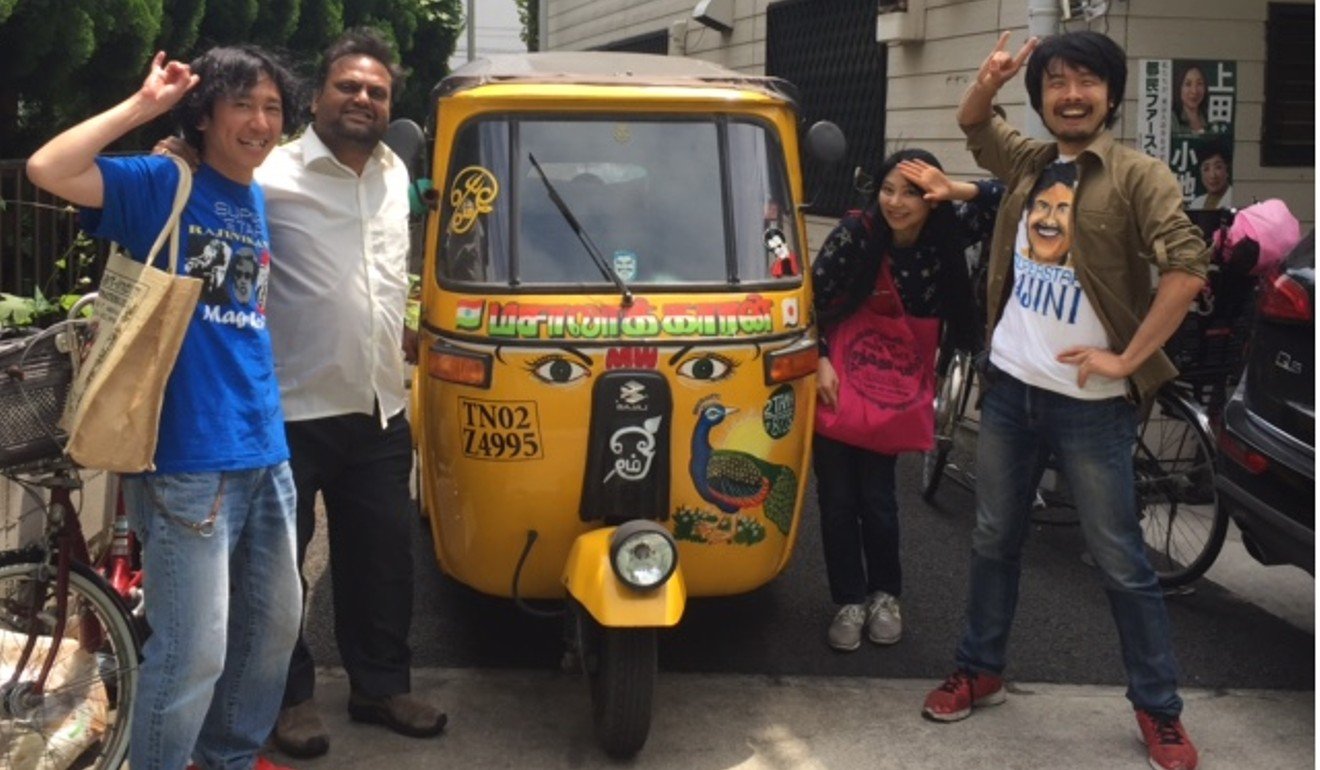
Rajinikanth: The Tamil star who has a cult following in...Japan
Worshipped like a god in India, Rajinikanth scored an unlikely breakthrough with ‘Muthu’ – which filled Tokyo cinemas, ran for 23 weeks and grossed US$1.6m
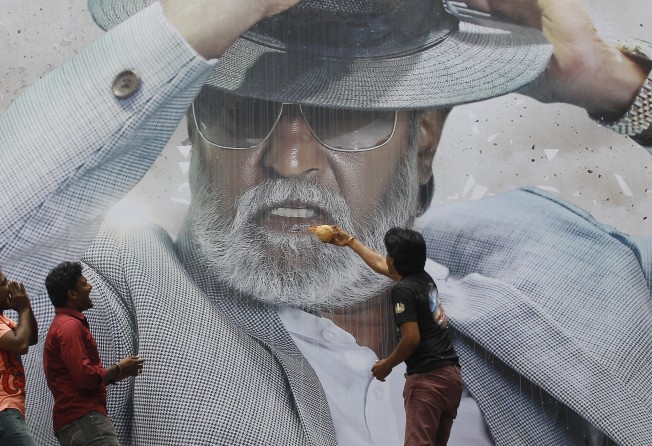
Hiroyoshi takeda is not a typical Japanese man. Instead of a suit and tie, the 39-year-old Tokyoite wears T-shirts with technicolour caricatures of a moustachioed south Indian movie star. Rather than bowing, he dances. He doesn’t ride the metro, but travels the streets in a gaudily adorned auto rickshaw imported from Tamil Nadu.
Not for him the hushed tones and constricted body language that are the Japanese standard. Takeda talks loudly, waggling his index finger at the sky. And the smoothness with which he can toss his hair back while simultaneously removing his sunglasses is wolf-whistle worthy. In fact, in almost everything he does, Takeda channels the spirit of his shirt-hurling, cigarette-flipping, lungi-dancing hero, Tamil superstar Rajinikanth.

In the international imagination, Indian movies are synonymous with Bollywood, the Mumbai-based, Hindi-language film industry dominated by clean-shaven, fair-skinned actors like Aamir Khan, the star of the international hit Dangal. In fact, India is home to more than 20 regional-language movie centres.
The south Indian Tamil and Telegu film industries rival Bollywood in the number of films made and box office receipts. Of the 1,827 films certified in India in 2015, Bollywood movies accounted for 297, exactly the same number as the Tamil film industry. This year’s Tamil-Telegu bilingual historical epic, Baahubali-2, is on track for becoming India’s highest-grossing film, having netted Rs1,675 crore (US$260 million) worldwide by early June.
The man who bestrides the Tamil film industry like a colossus is superstar Rajinikanth, revered so highly by his fans that they bathe his cutouts in milk, a practice usually reserved for the idols of Hindu gods.
There is currently intense speculation that the 66-year-old actor might be readying for a political debut. India’s ruling party, the BJP, is believed to be wooing Rajinikanth to cash in on his demigod status to gain a foothold in Tamil Nadu, a state they have so far struggled to gain traction in.
But while the actor’s fans in India are legion, his popularity in the Japanese archipelago comes as a surprise. Takeda estimates there are about 3,000 members of the Rajinikanth fan club in Tokyo alone, with other clubs also active in cities like Osaka and Kobe. Some, like Takeda, have even learnt Tamil to feel closer to their screen idol.
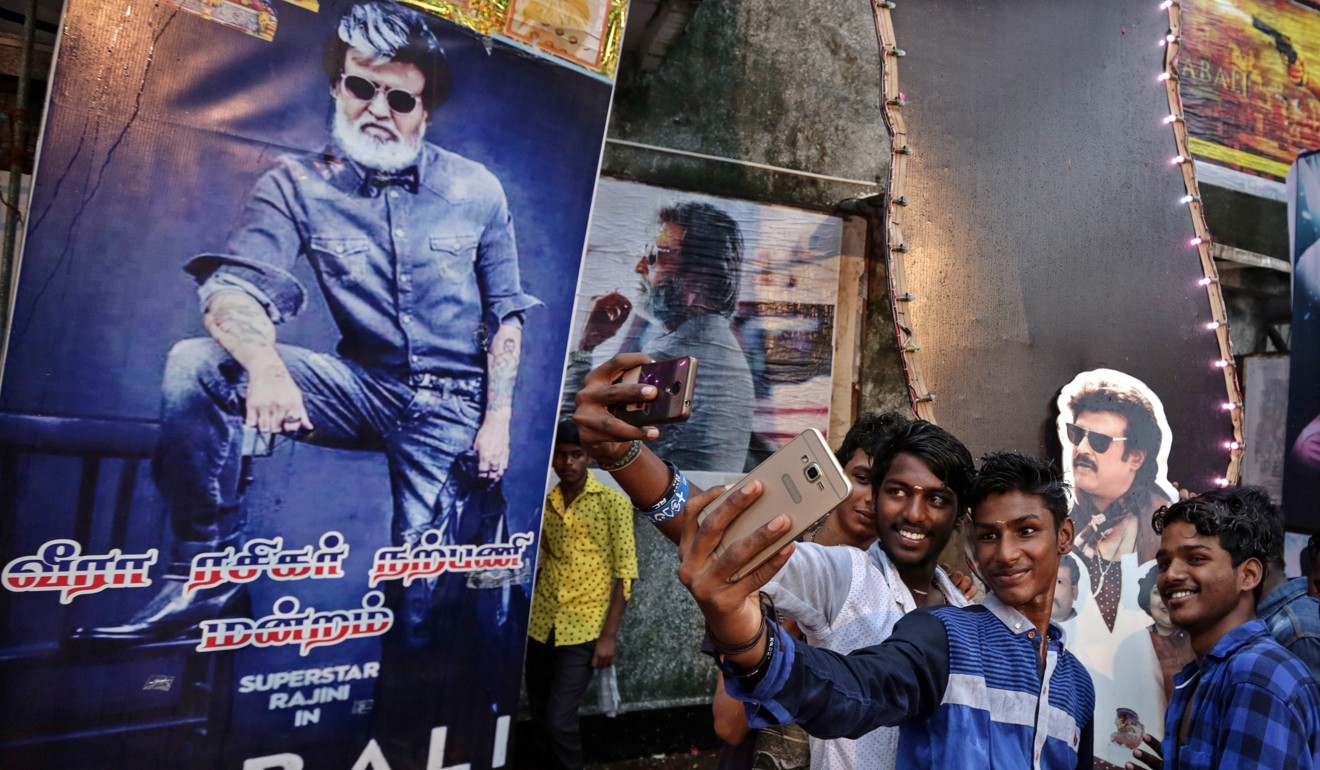
The actor’s popularity in Japan took off in June 1998, when Muthu began a run that lasted for 23 weeks and grossed US$1.6 million. For a few months, images of Rajinikanth, his luscious co-star Meena, and for good exotic measure, an elephant, were plastered on prominent hoardings across Tokyo. Cinemas showing the movie were sold out.
Something about the Tamilian king of melodrama’s hyperbolic acting style, kinetic costume changes and exuberant dancing improbably clicked with the understated and reserved Japanese audience. At the time, the bursting of the Japanese asset bubble had left both the economy and many citizens depressed.
Rajinikanth’s zingy dialogues and irrepressible panache provided laughs, escapism and an antidote to the suppressed angst suffered by many cinema-goers.
In a 2010 article published in the Hindustan Times, Rajinikanth fan Noriko Inagaki recalled that she first saw Muthu at a time when she had isolated herself from all social contact, having lost her job in a corporate downsizing. But as she watched the movie, her depression lifted and not long after she got another job.
Everyone has his or her unique explanation for Rajinikanth’s allure. On a recent afternoon three men, including Takeda, and two women, all in their 30s and all members of the Tokyo Rajini fan club, talked about their favourite star over masala dosas at an Indian restaurant in eastern Tokyo. They dug into their food with their hands – not a chopstick in sight.
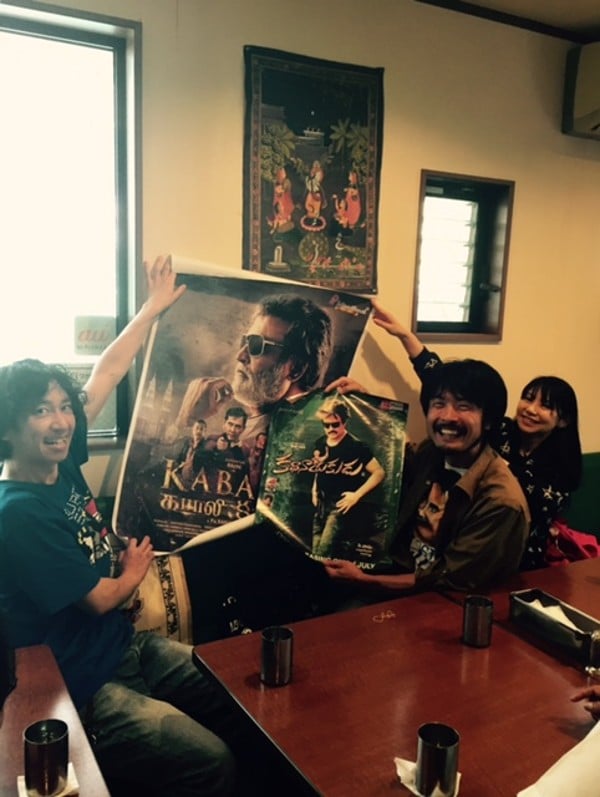
Shinya Asanuma, a clean-shaven, curly haired fan, recalled how he’d been gobsmacked by Rajinikanth’s facial expressions.
“They were just so different from us Japanese,” Asanuma said, almost misty eyed. Mikan, one of the women, said she was attracted to Muthu’s storyline, which showed “how a little money is enough to live peacefully”.
But Rajinkanth’s Muthu not only entertained, it changed lives. In 2008, Takeda and fellow fan, Shinji Kashima, set up a Tokyo-based, south Indian food catering business called Masalawala. They now make their living serving up sambar, vadas, rasam and the like in a fully traditional style on banana leaves. Mikan teaches Indian movie-style dancing in Tokyo, while Atsuko, another female fan, has become a henna artist. India has long exerted a strong cultural pull on Japan. After all, Buddhism, a religion that is foundational to Japanese culture, was an Indian import.
Rajinikanth seems like an unlikely successor to Buddha, but globally the entertainment industry is a powerful purveyor of soft power. When India’s then-prime minister Manmohan Singh visited Tokyo in 2006, his mention of Muthu in an address to the parliament garnered one of the strongest rounds of applause.
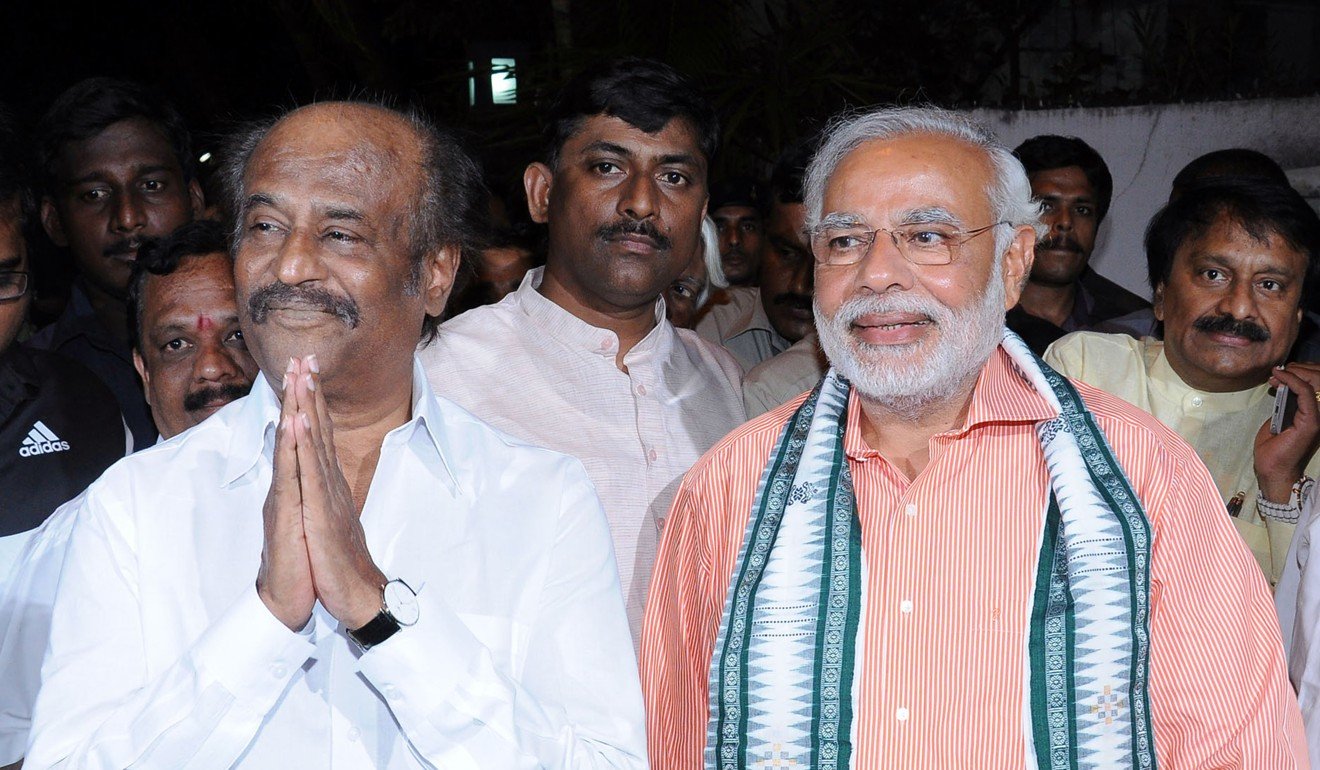
Sadly for his fans, Rajinikanth’s popularity has made little if any practical difference to the broader India-Japan relationship. The success of Muthu was never replicated, though several Rajinikanth vehicles – Ejaman, Badsha, Robo and Arunachalam – had a limited release in Japan.
Despite his core set of dedicated followers, the Tamil star has nothing like the name recognition of Hollywood heart-throbs like Leonardo DiCaprio or Brad Pitt. Takeda and his friends blame his failure to break into the mainstream on bad marketing. But they also admit their own parents are tepid when it comes to Rajini films.
Rajinikanth has never even been to Japan. And an attempt to film the opening song for his 2014 movie, Lingaa, in Tokyo didn’t work out due to cost and time constraints. But even if Rajini won’t come to Japan, his Japanese fans will certainly go to India. Takeda and Kashima have already been to Chennai 10 times. Asanuma will soon travel to Tamil Nadu for a month.
As they get ready to ride off in their auto rickshaw, adorned with peacock and Rajinikanth stickers, the fans pull out posters of the film star and pose for pictures. Takeda’s parting shot is a classic piece of dialogue from Muthu: “Naa eppa varuveen, epdi varuven-nu yaarukkum theriyaathu. Aana, vara vendiya nerathila correct-aa varuven! [No one knows when will I come and how will I come. However, when I have to come, I will come without fail!]”■■